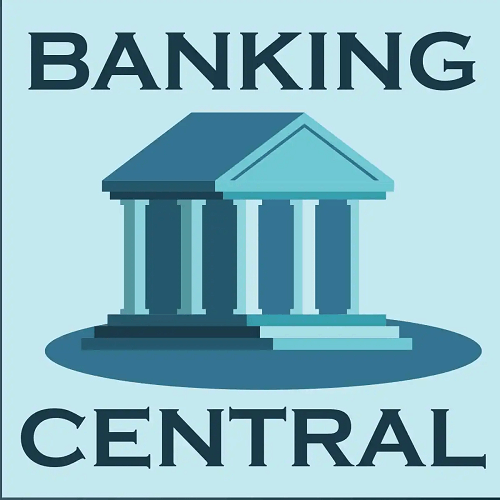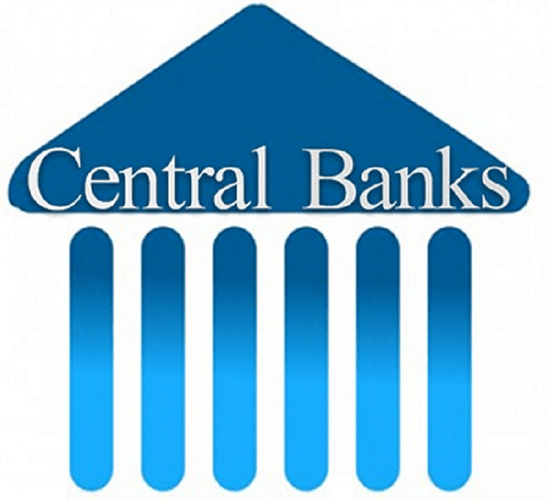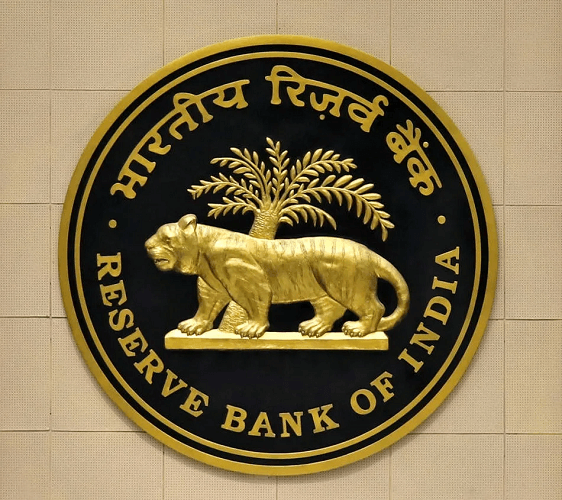Central Bank DefinitionA central bank is a financial organization administering a nation's currency, directing its monetary policy, and regulating its financial system. The responsibility for preserving financial system stability and guaranteeing the smooth operation of the economy falls on central banks, which are normally autonomous government organizations. 
Modern economies depend heavily on central banks to run smoothly. Setting interest rates, managing the money supply, and overseeing the banking system are just a few of their major duties. Central banks may aid in reducing inflation and fostering economic stability by managing the money supply. Additionally, they serve as a lender of last resort, giving loans to financial institutions with liquidity issues. Managing a nation's currency falls within the purview of central banks. This includes determining exchange rates, purchasing and selling foreign currency, and maintaining the nation's foreign exchange reserves. Central banks may aid in promoting international commerce and ensuring that the nation's economy remains competitive by controlling the country's currency. Central banks perform crucial roles in fostering financial stability in addition to their regulatory and monetary policy duties. They monitor financial institutions' operations to ensure they are safe and sound and try to detect and reduce systemic risks to the financial system. A board of directors or governors, usually selected by the government, often oversees central banks. The board of directors decides on monetary policy and manages the central bank's daily activities. To guarantee the efficient operation of the financial system, central banks also collaborate closely with other governmental organizations, including the Treasury and financial regulators. History of Central BankBanking has a long history that starts at the beginning of human trading in commodities and services. The concept of banking emerged when humans began utilizing certain commodities, such as gold and silver, as a form of trade. Ancient civilizations like Mesopotamia were where one of the oldest known types of banking originated when tradespeople and merchants would lend money to one another to fund their economic endeavors. This early type of banking was founded on trust and depended on reputation and personal connections to guarantee loan repayment. 
The first central banks were founded in Europe in the 17th century, which is when central banks initially became popular. These early central banks were built to offer a stable currency for trade, aid in financing wars and other government initiatives, and assist in funding these. The banking industry changed and was formalized over time. Moneylenders started specializing in loan-making and interest-based pricing in medieval Europe. They were called "money changers" and conducted their business in modest shops. In addition to offering loans to people in business and travelers, they would exchange money. The 17th and 18th centuries were the beginning of the banking system. The banking system and the banks got more important due to the growing capital requirements due to the industrial revolution of the 19th century. Paper notes were first introduced by the banks only that was both easy to manage and keep than coins. Along with that new concept of bank accounts, people were now offered deposit facilities and many other facilities. With the arrival of the 20th century, the boomed globalization concept prevalent among the economies that brought new technologies helped the banking system be more efficient. As credit cards, ATMs, and electronic banking grew increasingly widespread, individuals worldwide could access and use financial services more easily and efficiently. The Bank of Sweden is regarded as the first central bank occasionally, which was founded in 1668. In addition to managing Sweden's currency and national debt, the bank was established to assist in funding the Great Northern War. Another early example of a central bank is the Bank of England, founded in 1694 provided assistance in balancing the currency in terms of trade and helped in the aid process in the war against France. Comprising an array of tasks meant to promote monetary stability and government control over financial institutions countrywide, central banks were constructed by nations during the late eighteenth and early nineteenth centuries, not lacking behind in fulfilling their role as one of the most prominent global central banks worldwide is The Federal Reserve System that came into existence just under a century ago in 1913; its formation aimed at achieving three primary objectives: maintaining a stable currency system for America and other states abroad from inflationary ventures; overseeing national banking activities alongside financial development for sustained economic advancement. To ensure the effectiveness of economic policies and respond promptly to financial emergencies, central banks took strides toward working collectively with other governmental institutions. Concerning the economies in today's scenario, the central banks are essential for their operations, With the liberty of making monetary decisions, overseeing the financial system, and controlling the nation's currency for balance. They aim to ensure that people and companies have access to financial services whenever they require to prosper and that the economy runs efficiently and achieves development both in numbers and in qualitative terms. Despite playing a crucial role, central banks have come under fire and generated debate. Some detractors claim that central banks have too much authority and that their actions might harm the economy. Others contend that central banks are essential for maintaining economic stability and that the effectiveness of their policies in fostering development and prosperity supports this claim. Roles and Responsibilities of Central BankThe indispensability of a central bank in any modern economy for its roles and responsibility in financial terms cannot be overstated. All aspects of the financial system, underlying economic stability, and effectiveness depend on the country's central bank's regulatory role with utmost accountability. It supervises and regulates monetary policy to ensure consistency with government objectives, informing economic outlooks. Additionally, it oversees the controlled circulation of money and guards against the destabilization of financial institutions by adopting measures aligned with sound fundamental principles. Following are Some Important Roles and Responsibilities
Formation of The Central BankAn agency that will regulate a nation's monetary policy, which directly influences the country's developmental parameters, must be established as part of the complicated process of creating a central bank. Usually, multiple important phases in this procedure are considered, considering the institution's importance. First, the national government establishes a central bank for all economic activities. This choice is often made in response to several concerns, including the economy's demands, political considerations, and the need to preserve financial stability, a major concern for any country. After establishing a central bank, the government must decide on the institution's legal foundation. This entails creating laws that specify the central bank's mission, authority, and organizational structure. The statute may also specify the central bank's financing source and the range of its operations. The very following step is forming a legal entity for the central bank. This entails registering the institution with the appropriate government agencies, or it can be established as a government body, the Ministry of Finance, or the regulator of the central bank. India's Central Bank RBIThe Reserve Bank of India (RBI) is India's central bank, overseeing the banking industry, maintaining the nation's foreign exchange reserves, and regulating monetary policy. Based on the recommendations of the Hilton Young Commission, which was constituted to look at India's banking system and currency arrangements, it was established on April 1, 1935. 
The Imperial Bank of India was created by the British Government in 1921 to serve as the nation's central bank. This is how the RBI got its start during the colonial era. However, the Imperial Bank of India lacked central bank authority, and the Bank of England continued to influence India's monetary policy significantly. The Reserve Bank of India Act, passed by the Indian government in 1934, created the RBI as a completely autonomous organization with the authority to issue money and oversee the banking industry. On April 1, 1935, the RBI assumed the duties of the Imperial Bank of India and started serving as the country's central bank. The RBI has been essential to the growth of India's economy over the years. By establishing monetary policies and expanding the banking industry, the RBI concentrated on fostering economic growth and stability during the post-independence era. The nationalization of the RBI in 1949 reinforced its position as a central bank. Additionally, the RBI has been instrumental in encouraging financial inclusion in India. The Jan Dhan Yojana program and the Digital India campaign are two recent examples of the RBI's numerous endeavors to broaden access to banking services and encourage financial literacy. The RBI is a contemporary central bank with various duties today. It is in charge of preserving price stability, fostering economic expansion, and guaranteeing financial stability. Both domestic and foreign investors carefully monitor the RBI's policies and decisions because of their considerable effects on the Indian economy. Powers And Important Posts of The Central BankA nation's central bank, like the Reserve Bank of India (RBI), oversees the nation's banking system and regulates the nation's monetary policy. The RBI holds the following significant positions and powers:
Some of the Most Important Authorities
Appointments in The Central BankImportant positions must be filled with qualified candidates for a central bank to operate effectively, such as the Reserve Bank of India (RBI). Here are some critical facts about appointments inside the RBI:
Selection Procedure Virtues
ConclusionA central bank is a key institution to control a nation's economy. In addition to carrying out monetary policy, it is also in charge of administering payment and settlement systems, banking system regulation, and currency issuance. Along with ensuring financial stability, the central bank fosters economic expansion. The central bank shapes the economy's direction. It ensures its long-term stability and growth through its authority and significant positions, including the Board of Directors, the Governor, and the Deputy Governors.
Next TopicCreativity Definition
|
 For Videos Join Our Youtube Channel: Join Now
For Videos Join Our Youtube Channel: Join Now
Feedback
- Send your Feedback to [email protected]
Help Others, Please Share










